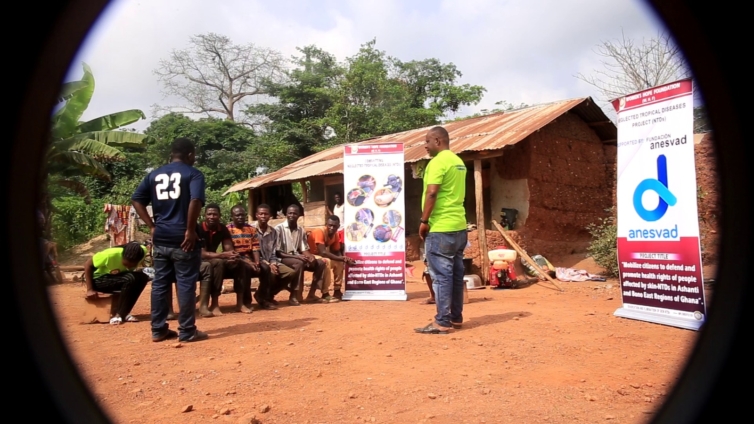The lush green fields of some communities in Sekyere East District of the Ashanti region, once brimming with life, are now abandoned by farmers suffering from various Neglected Tropical Diseases (NTDs).
Meet Daniel Subeteyi, a resilient 51-year-old farmer from Addokorom whose fields, once brimming with promise, now ring with quiet.
Daniel's haggard face as he looks over his fallow cocoa farm. He tries to pick up his cutlass from the floor, but leprosy has taken away his freedom.
Daniel, who has six children, faced challenges when his beloved wife, Madam Yakpenimeh Rukayah, died in 2020. The loss brought with it a number of hurdles, some of which were compounded by his continuous battle with leprosy.
"I started to experience strange changes on my hands just after my wife died. Because I was worried about these changes, I sought medical attention, which led to the diagnosis of leprosy. When I found out I had leprosy, I felt desperate and increasingly anxious - knowing well my farming activities, specifically cocoa, maize, and cassava cultivation would be affected," he said.
Daniel's ill-health has affected his ability to provide for his children's education, which he previously achieved through diligent work, meticulous weighing of cocoa beans, and a profit of 4,000 cedis. However, it is disheartening to learn that the farm's income is decreasing and no longer enough to cover labourer wages, let alone fulfill his needs and that of his children.
His son, 24-year-old Callistus Subeteyi, confesses that his father's poor health has substantially delayed their educational ambitions, forcing them to return to the village to help him in meeting the family's needs, particularly the education of their younger siblings.
One of the challenges Daniel faces on his farm is the uneven distribution of cocoa plants, which leaves some sections empty. "I am looking for help to fill those empty places, making the entire farm more complete. This improvement is expected to increase my overall production and thus my earnings."
About years ago, 41-year-old Kofi Job, a resident of Asokore Bomso, was afflicted by leprosy, which eventually led to his mysterious death in October 2023 amidst a deteriorating health condition.
According to his niece, Maame Pokuaa, Kofi's fingers began to decay and fall off as a result of the disease.
Pokuah says the family initially, attributed Kofi’s condition to a potential curse from a past journey. However, a health professional later diagnosed it as leprosy when it was quite advanced, resulting in the loss of his fingers and toes.
"He was sad and cried every day until his death. In fact, it was painful to see someone who had once been active, working hard to support his family, now taken over by sickness," she stated.
Kofi's poor health generated a strong, terrible smell, and maggots emerged from his feet as he shared a sleeping space with his older brother, Kofi Akyena. "I sought a separate room for him to alleviate the discomfort and provide some relief, because I was unable to endure the odor," he said.
According to Pokuah, her uncle, Mr Akyena, showed compassion by sharing a room with the late Kofi. However, the arrangement needed to be changed fast because Mr Akyena's health was also in jeopardy.
Pokuah said her uncle, Mr Akyena showed great compassion by sharing a room with the late Kofi. Unfortunately, they soon recognized that her uncle's health was at risk due to this arrangement.
“Maggots were emerging from his leg, emitting a strong and unpleasant odor even from a distance. At times, he resorted to applying petrol on the leg, leading to the development of gangrene in his toes. Even my mother had to wear a nose mask before delivering food to him. Throughout this ordeal, my uncle went above and beyond, diligently dressing his leg.”
But Daniel and Kofi’s families are not the only ones who suffered from the neglected tropical diseases. Afia Alhassan's dreams are shattering by scabies infections, and she hasn’t conducted any successful business for some time now.
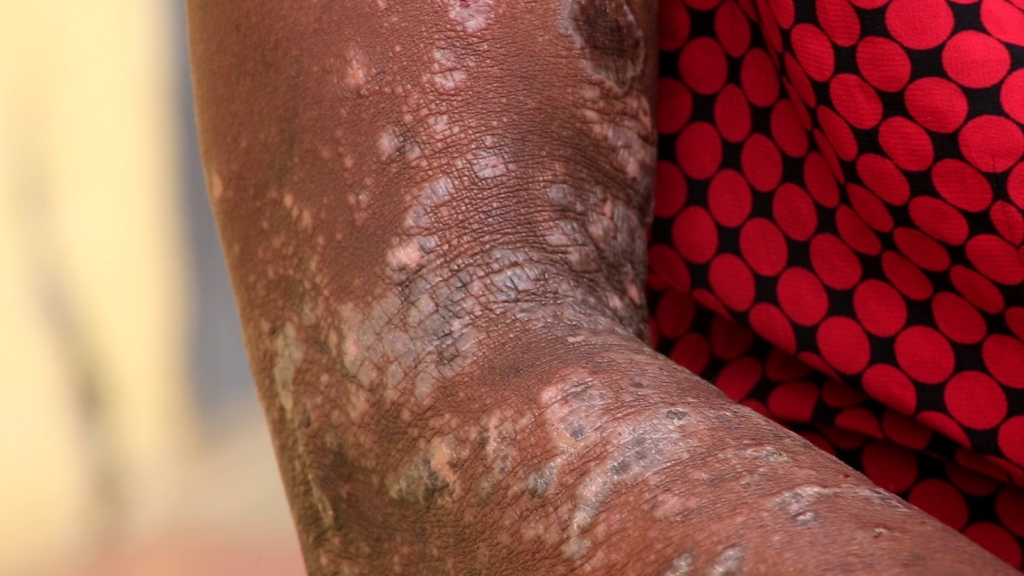
Afia says she has been struggling for her well-being for nearly two years without success. This has led to social rejection, making it difficult for her to attend church or visit the town. “Even when attempting to go out, I have to wear a sweater to conceal myself,” she lamented.
50-year-old Kwadwo Asare at Bimma number (2), developed a nodule in his former residence in Prestia that eventually burst, resulting in a medical condition known as Buruli Ulcer. Despite seeking medical attention and receiving drugs, his condition quickly deteriorated. Kwadwo was compelled to move to Bimma number (2) to live with his brother because he was unable to work and needed assistance.
"The pain is especially severe after taking a bath. It becomes so irritating that I struggle to sleep. It could last all night, often until dawn before I can finally find relief and fall asleep," he explained.
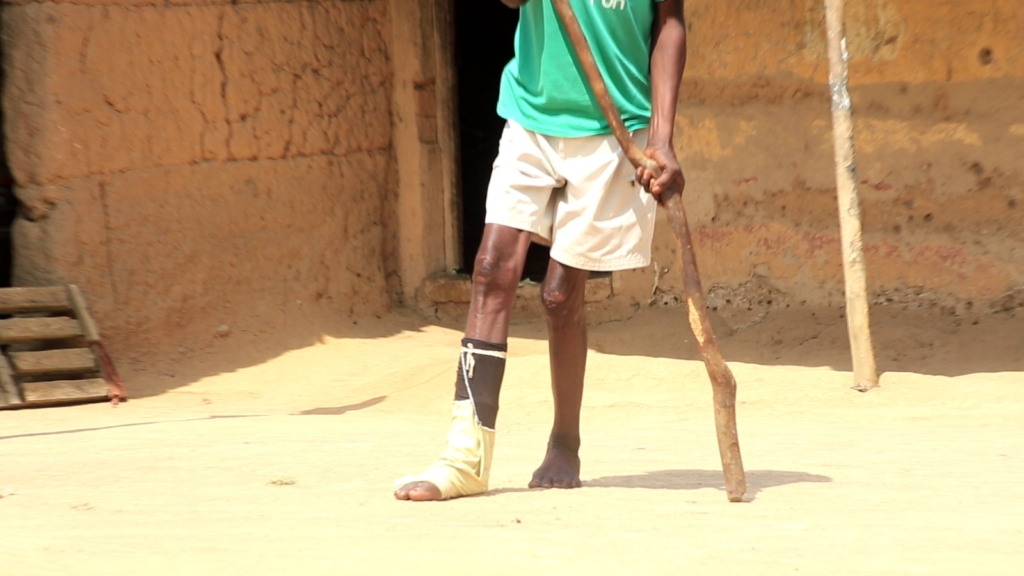
Kwadwo has been suffering from the Buruli Ulcer for four months, despite having four children and being out of work. Financial restraints keep him from getting extra medical care, resulting in extreme agony and sleepless nights. This has put financial hardship on his family, exacerbating their financial woes.
"We are currently unable to muster the strength and resources required to care for my brother and his children," says Kwadwo's sister, Akosua Antwiwaa adding, "our situation feels dismal, and we find ourselves lacking the necessary resources. In this time of need, we humbly request that generous and compassionate persons assist us."
According to one of Kwadwo's brothers, Yaw Sekyere, when Kwadwo arrived at Bimma number 2, no one recognized him until they learned he was their brother. "His leg was in a state of decay, and we had to use a blade to cut through his trousers before we could remove them."
A silent epidemic has gripped Sekyere East District in the Ashanti region. Scabies, lymphatic filariasis, yaws, leprosy, and even rabies deaths have left a terrible shadow.
13-year-old Raheal Aganah awoke one morning to find that her left leg had drastically grown in size, indicating a medical condition known as lymphatic filariasis, as diagnosed by medical doctors.
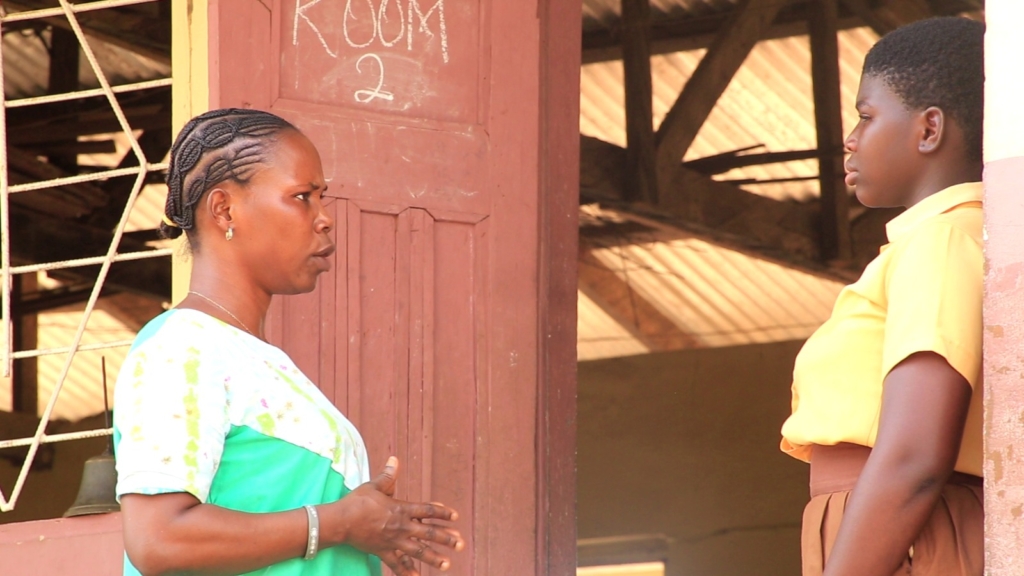
Her father, Isaac Atinga, states that the condition had an impact on Raheal's school attendance, as her classmates began to mock her because of it.
"She initially hesitated to attend school because her legs were bloated, fearing mockery from her peers. However, she has conquered her anxieties and resumed her studies. Despite the hurdles, she remains committed to being a nurse in the future," Isaac stated.
Causes of rabies, Buruli Ulcer, Yaws, Leprosy, Lymphatic Filariasis
Rabies is a viral disease spread by infected dog bites; Buruli ulcers cause serious skin, bone, and tissue damage; and yaws and leprosy are chronic bacterial infections that affect the skin, bones, and nerves. Lymphatic filariasis, however, causes abnormal growth of the limbs and genitalia as a result of mosquito-borne worms in the lymphatic system.
These NTDs cause deformity and disability, among other things, leading to stigma, and they are mostly found in conflict-affected and rural areas with limited access to clean water and healthcare.
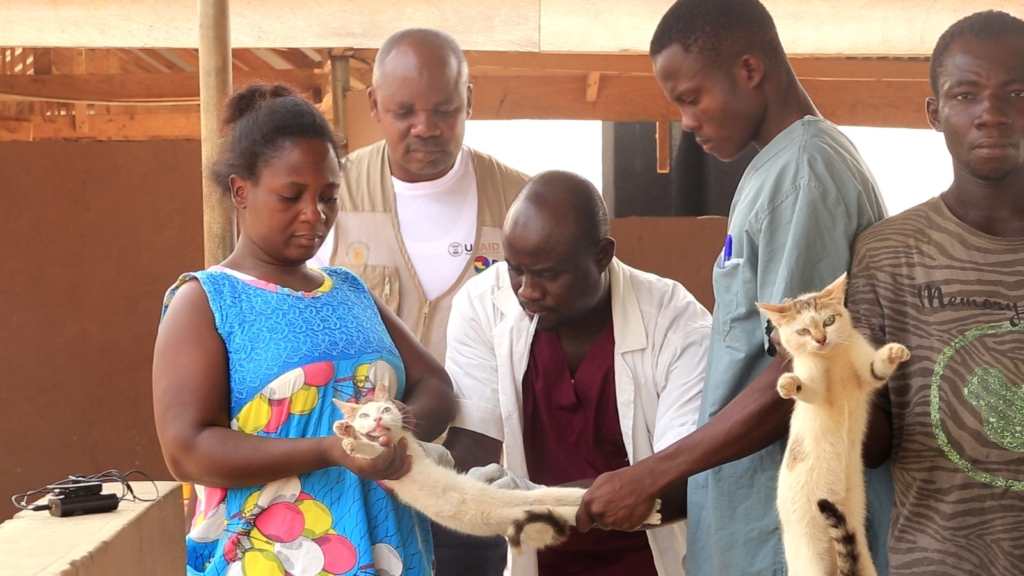
NTDs encompasses a collection of twenty (20) viral, parasitic, and bacterial diseases, primarily afflicting over one billion people among the world’s most marginalized populations.
According to Chief Biomedical Scientist at the NTDs Programme, Edward Tei hervie, Ghana has 14 NTDs, with every district reporting at least two diseases.
In 2023, Sekyere East District reported 2, 553 cases, including scabies, lymphatic filariasis, yaws, leprosy, and 7 tragic deaths from rabies among children.
Shyness, Ignorance, and Spiritual Beliefs Hindering Assistance
Shyness, ignorance, and spiritual beliefs have kept these suffering residents from seeking medical care. But now, interventions are turning the tide because the district health directorate is bringing relief to those in the shadows.
During a community outreach in Ntunkumso, 50 cases were detected and referred to the health facility for treatment and monitoring. Minor cases were promptly treated on-site.
The District Disease Control Officer, Evans Adu Brown, states that among the cases, 20 were identified as scabies, lymphatic filariasis, and other conditions. "The severe cases are being referred to the facilities for further treatment and monitoring," he explained.
The Ashanti Regional Director of Health, Dr Emmanuel Tenkorang, said many of these diseases can be tackled through community-based interventions and government support. He highlights that residents often avoid visiting hospitals unless they are severely ill. Therefore, there is a need for proactive case searching to identify affected individuals and raise awareness about these diseases within the community.
"We must conduct case searches to identify affected individuals and raise awareness about these diseases," he emphasised.
Dr Justice Ofori-Amoah, the Sekyere East District Director of Health Services said, "We are emphasising that residents should report cases to the nearest facility."
Over the past three years, Dr Ofori-Amoah notes that the figures have been on the rise due to the case search conducted by the directorate.
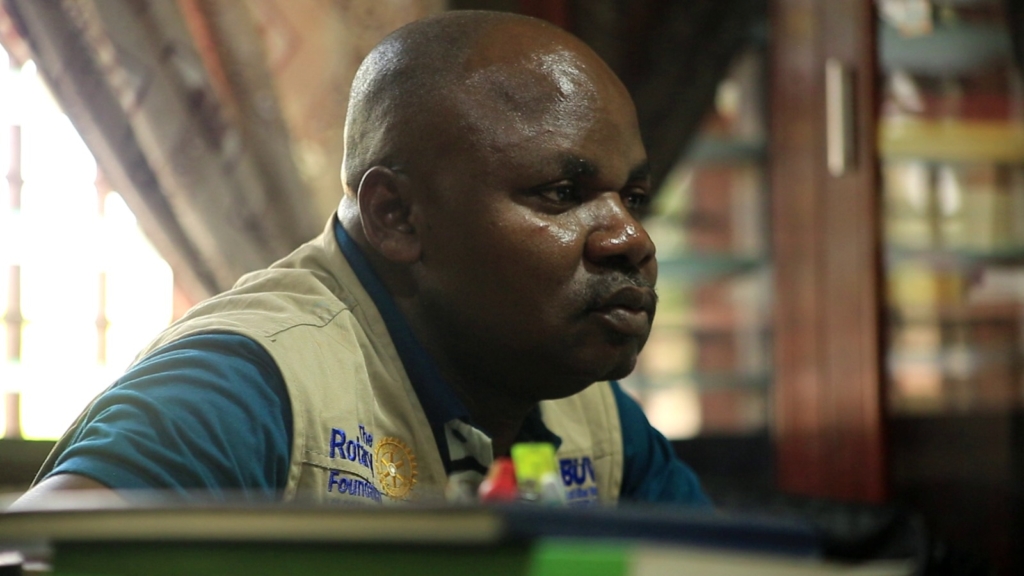
Breaking the Silence
A district once in chains is breaking free. Daniel, Afia, Kwadwo, Raheal and others are reclaiming their lives. For example, Kwadwo is currently undergoing medical care provided by healthcare professionals in the district.
Staff midwife at the Alokoaso health centre, Nora Addo, mentions that the monitoring team identified Kwadwo as a defaulter, but they are committed to delivering healthcare services to him. Nora and her team promptly addressed Kwadwo's situation and ensured that his leg received the necessary medical care instantly.
Kwadwo expresses gratitude and believes that if this positive trend continues, everything will eventually be well for him.
“I expressed gratitude to them in the name of the Almighty God for addressing my problem. I have faith and trust in the Lord that if this positive trajectory continues, everything will eventually be well for me.”
Kwadwo is expected to visit the health facility henceforth for further arranged medical care by the medical team.
37-year-old Dasemani Akugri from Teteko has successfully overcome his leprosy condition. He advises residents to visit the hospital if they notice any signs. “It's essential to understand that it may not be related to witchcraft. Instead, I recommend visiting the hospital for proper medical attention,” he said.
In Dasemani’s experience, when he sought medical help, it proved to be beneficial and the best for him. “Initially, it started as small boils on my body accompanied by itching. However, when scratched, it resulted in the formation of black spots on my skin,” he indicated.
The Effiduase Baamuhemaa, Nana Obour Frema Pokuaa, expressed gratitude for the timely intervention of the health directorate, which has brought a sense of relief to them. She emphasised the importance of parents actively monitoring the healthcare needs of their children.
“I am advising parents to establish a closer connection with their children, as this would enable them to identify any signs of the disease at an early stage. This proactive approach is crucial in preventing the spread of the illness within the family and beyond.”
Nana Yaw Boahen, Nsutam Ankobeahene, agreed with Nana Pokua Yaa's statement by adding that is was important for parents to monitor their children's healthcare needs.
Nana Boahen says he could testify what the doctor said about the disease and that his family also experienced it, which was transmitted by his elder child who contracted it in school.
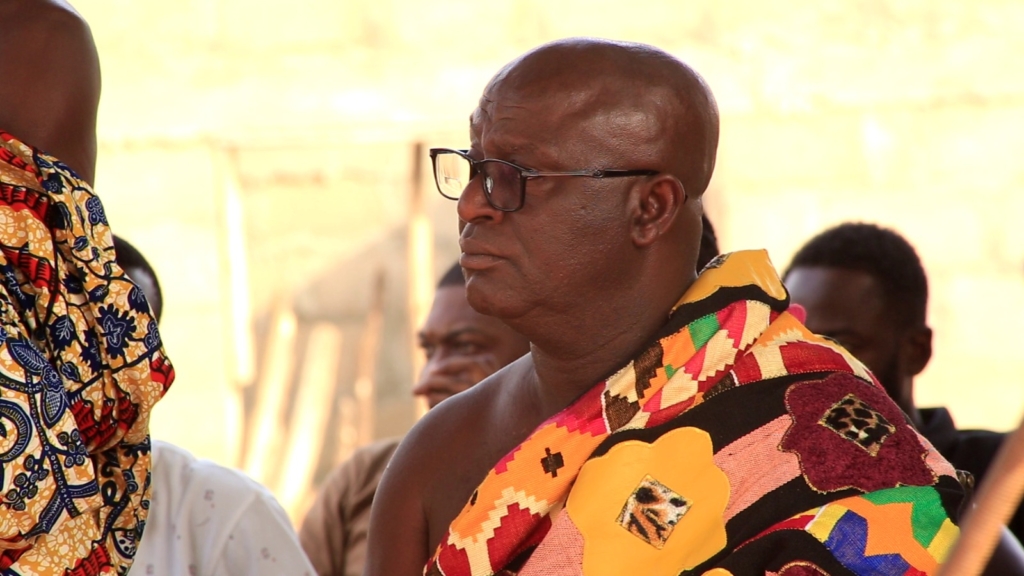
“After learning about the condition and the necessary steps to address it, I diligently took action. As a result, my family is now free from the disease. This underscores the severity of the illness, emphasising the importance of seeking prompt medical attention rather than being hesitant if symptoms are observed.”
Patricia Amani, a resident, is thrilled about the community outreach, as it is instilling hope and empowering individuals to combat the disease.
“We express our gratitude to God and are immensely pleased that the health workers came to educate and treat our ailment. From now on, we commit to supporting and participating in this programme aimed at eradicating the disease,” she said.
Residents from different communities in the district now assert that the belief that neglected tropical diseases (NTDs) are caused by spiritual attacks has deterred afflicted individuals from seeking assistance.
For example, Kwadwo Appiah from Addokorm, who previously believed that the disease was solely inherited or caused by a curse, has now acquired more knowledge about the illness.
“I now understand that it is caused by bacteria. As a result, we have decided to prioritize regular check-ups at the hospital moving forward,” he said.
Paulina Notom, who initially held similar beliefs about the diseases, has abandoned that misconception. She emphasises the importance of providing protection and support for those affected, rather than segregating them from the communities.
“I initially believed that the disease is of a spiritual nature, leading to the isolation of those who were infected. However, I have come to realize that isolating individuals with the disease is not the solution.”
SUPPORT FROM THE WOMEN’S HOPE FOUNDATION
The Women’s Hope Foundation has been supportive to the district, offering essential aid in the battle against diseases. Their contributions, including the provision of medical supplies and financial assistance, have significantly bolstered the district's efforts.
Alexander Adusei who serves as the Executive Director of the organization says, they would continue to provide the necessary support to ensure the district becomes NTDs free.
“We have been able to reach over 2000 people with scabies cases and with support for Buruli ulcer, lymphatic cases,” he noted.
Various organizations contribute to the eradication of NTDs in the district. According to the Ashanti Region Health Director, Dr Tenkorang, this support manifests in different ways, including training, logistical assistance, and provision of medications.
The Member of Parliament for the Effiduase/Asokore constituency, Dr Nana Ayew Afriyie, who launched a campaign against the diseases, has affirmed that his office is aiding the district health services to oversee and address the situation.
He says, “The diseases are preventable and can be treated. Capacity building for health personnel is crucial. So, I have looked for the money for all this.”
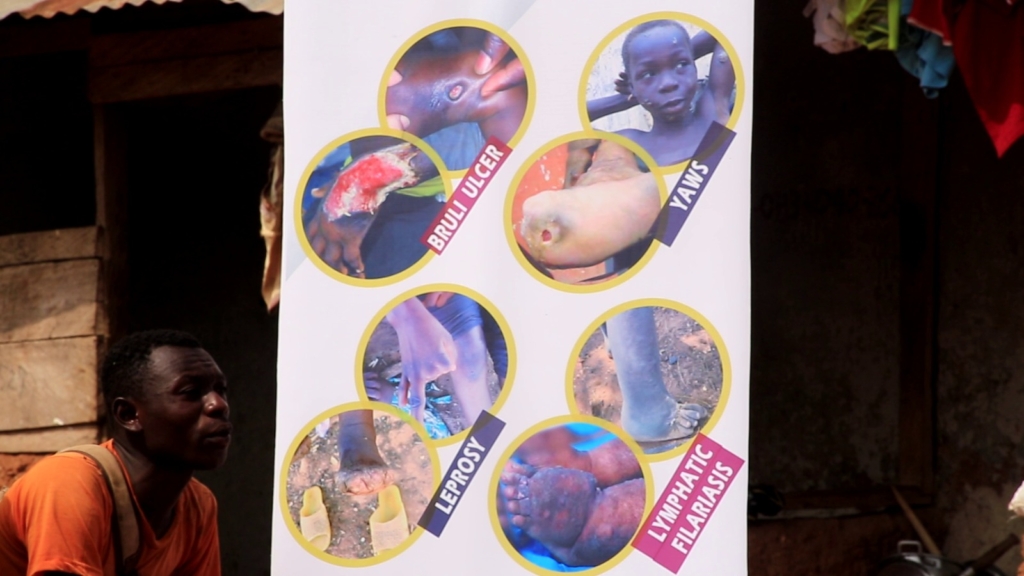
“He says many of the diseases can be intimidating to discuss, but it's crucial to recognize that early prevention measures are often readily available. “Early detection and intervention play a significant role in managing and preventing the progression of various health conditions.”
Now, the chains of Neglected Tropical Diseases are breaking, and a new chapter begins in the district. Over 600 teachers have undergone training focusing on the detection, prevention, control, and management of NTDs within schools.
Over 300 dogs have also been vaccinated against rabies in five selected communities.
Construction of Polyclinic
Chief of Nsutam, Nana Agyei Jumah, has generously donated a two-acre piece of land for the construction of a specialized treatment center for Neglected Tropical Diseases (NTDs) in the country.
“Ghana is a sizable nation, and it is essential for all citizens to contribute to the government's efforts. I appeal to everyone to assist in establishing a polyclinic, which would not only serve as a healthcare center but also create job opportunities for the community. This collective effort can contribute to the overall well-being and prosperity of the country,” he said.
The facility is anticipated to be completed within the next two years is sufficient funding is made available.
Dr Ofori-Amoah has expressed his commitment to ensuring the operationalization of the facility, affirming that his team will intensify efforts towards this goal.
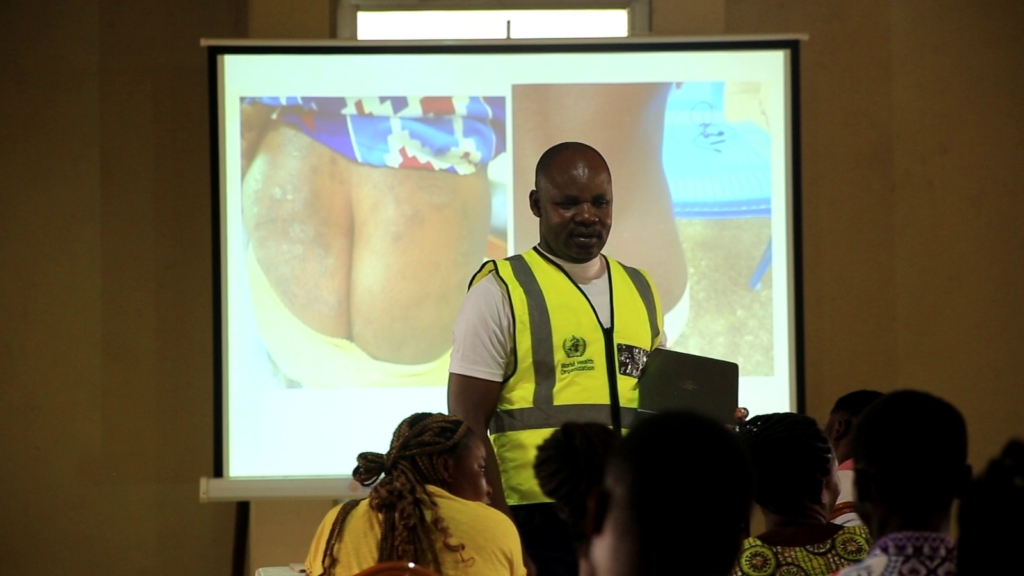
District Chief Executive for Sekyere East District, Osei Adiya, has extended an appeal to all well-to-do individuals, charitable foundations, government officials, pharmacies, and health practitioners with knowledge and resources to support the ongoing intervention.
“Your support is crucial in helping us eradicate this disease and improve the health and well-being of our community. Together, we can make a meaningful impact and create a healthier future for all.”
Latest Stories
-
Joy FM listeners criticise Achiase Commanding Officer’s election comment
11 mins -
Legal Aid Commission employees threaten strike over poor working conditions
14 mins -
Ghana ranked 7th globally as biggest beneficiary of World Bank funding
23 mins -
IMF board to disburse $360m to Ghana in December after third review
28 mins -
Former Bono Regional NPP organiser donates 13 motorbikes to 12 constituencies
34 mins -
Securities industry: Assets under management estimated at GH¢81.7bn in quarter 3, 2024
38 mins -
Gold Fields Ghana Foundation challenges graduates to maximise benefits of community apprenticeship programme
2 hours -
GBC accuses Deputy Information Minister Sylvester Tetteh of demolishing its bungalow illegally
2 hours -
Boost for education as government commissions 80 projects
3 hours -
NAPO commissions library to honour Atta-Mills’ memory
3 hours -
OmniBSIC Bank champions health and wellness with thriving community walk
3 hours -
Kora Wearables unveils Neo: The Ultimate Smartwatch for Ghana’s tech-savvy and health-conscious users
3 hours -
NDC supports Dampare’s ‘no guns at polling stations’ directive
3 hours -
Police officer interdicted after video of assault goes viral
3 hours -
KNUST’s Prof. Reginald Annan named first African recipient of World Cancer Research Fund
3 hours

